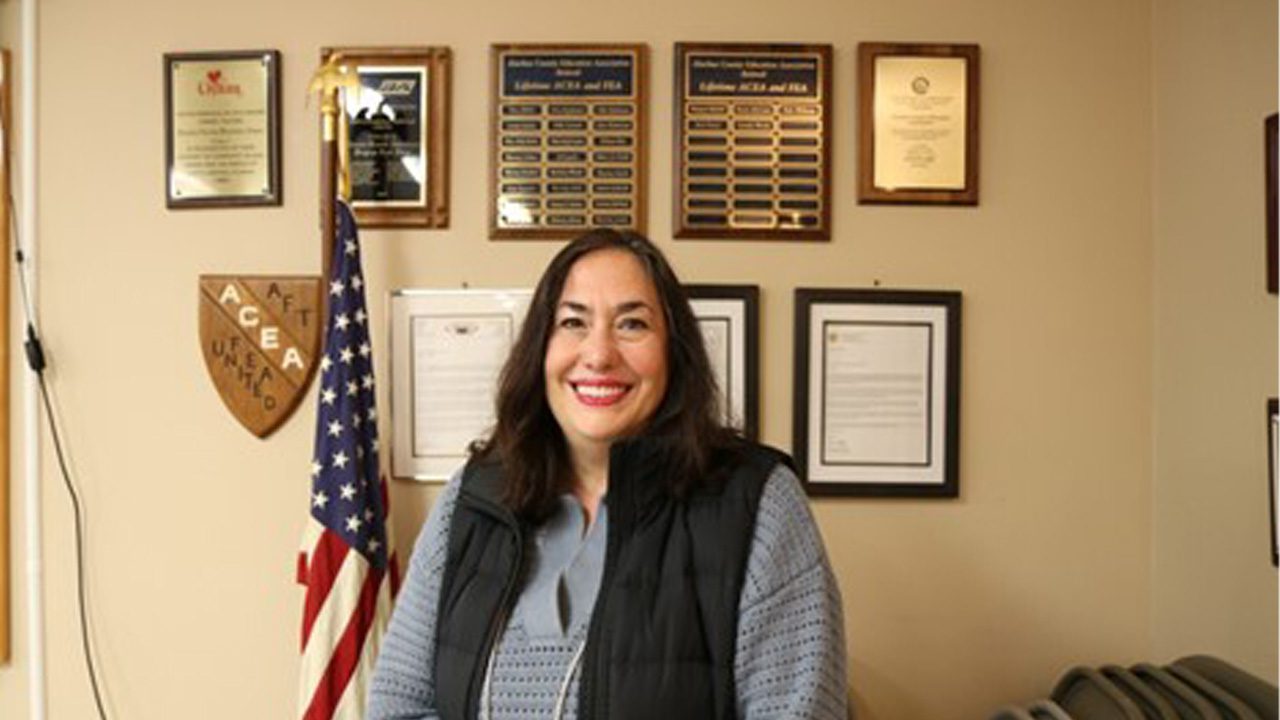
Bill to raise base salary for teachers fails to pass through Florida Legislature
For teachers in Alachua County, educating the next generation isn’t always their only job. It’s common for public school staff to have two or three jobs, Alachua County Education Association President Carmen Ward said. Whether it’s bagging groceries at Publix or Uber driving, secondary forms of income are often needed to pay bills, Ward said.
“They’re doing all kinds of other things because they’re not able to pay their rent,” she said.
Florida is ranked 48th in the nation for average teacher pay, with the current base salary set at $47,500. House Bill 13, introduced during the 2024 legislative session, would raise that base salary to $65,000. The bill stalled quickly after being introduced, and with the session ending Friday, it will not become law this year.
State Rep. Anna Eskamani, D-Orange County, who co-sponsored the bill along with seven other House Democrats, said the goal of the bill is to set a minimum standard for school districts to follow. By raising the base pay to $65,000, Eskamani hopes that all teachers would see an increase in pay. However, the Republican-dominated legislature was more focused on bills related to private education and classroom content, she said.
“I think that it’s a really good and important bill,” Eskamani said. “But unfortunately, the Florida Legislature has been on the path of privatizing education and making it harder for people to teach by creating all these new burdensome requirements.”
The Florida Education Association (FEA), the statewide union for teachers, has a team stationed in Tallahassee to advocate for its members during the session. The state’s current laws have created an unfair system of pay for teachers, FEA President Andrew Spar said, and HB 13 doesn’t address this root issue.
The last time Florida raised the minimum salary for teachers in 2020, Spar said, educators with experience suffered salary compression. While base salaries increased, overall pay did not, leading teachers with decades of experience to make the same amount as those with none.
“Once you get here, you go nowhere,” Spar said. “Those with experience are being so severely underpaid. It’s what’s contributing to this massive teacher and staff shortage.”
Instead of raising the base salary, Spar said the Florida Legislature should provide more funding to school districts so that teacher pay can be negotiated on a local level. FEA has advocated for an additional $2.5 billion of annual funding to the state’s public school system, which Spar said would raise teacher salary to an equitable level and provide more resources for students.
“I think it’s time to return control of public schools back to the public and the local community,” he said. “Rather than trying to have these divisive policies that divert dollars away from public schools, and that limit the learning of our students.”
In Alachua County, a teacher’s annual salary only reaches $65,000 after two or three decades in the classroom. The county is still working to raise teacher salaries to the state’s required minimum, Public Information Officer for Alachua County Public Schools Jackie Johnson said.
Not being able to offer higher pay contributes to the county’s teacher shortage, she added. Alachua County currently has 30 teacher vacancies, which are being filled by long-term substitute teachers.
“All you have to do is read the headlines and see what kind of pressures there are on teachers these days,” Johnson said. “They are expected to do so much, and they don’t always get the respect they deserve.”
The county also lacks funding from the state for operation costs like buses and school security, Johnson said. Florida also requires school districts to contribute to the state’s pension fund, as well as other state mandates. Alachua County, Johnson said, is not fully funded to comply with these state requirements.
Before becoming the ACEA president, Carmen Ward spent 30 years as a middle school teacher and a counselor. For new teachers, the first five years are often the hardest, she said. Low pay, classroom discipline issues and a state emphasis on private education are just some of the problems that new teachers face, Ward said. Before those first five years are up, many teachers decide to leave the profession, contributing to the county’s teacher shortage.
In January 2024, the county ratified a bargaining agreement with the Alachua County Education Association to raise teacher pay by 3.5%. The negotiations took 14 months, partially due to county leadership changes, Ward said.
While teachers in Alachua County are happy with the bargaining agreement, Johnson said the ACEA is still advocating for other public school employees such as bus drivers and teaching aides.
“We want to continue to see bills like HB 13, but we do need to address all of the employees in the public school system,” Ward said. “Because the shortages are everywhere”





